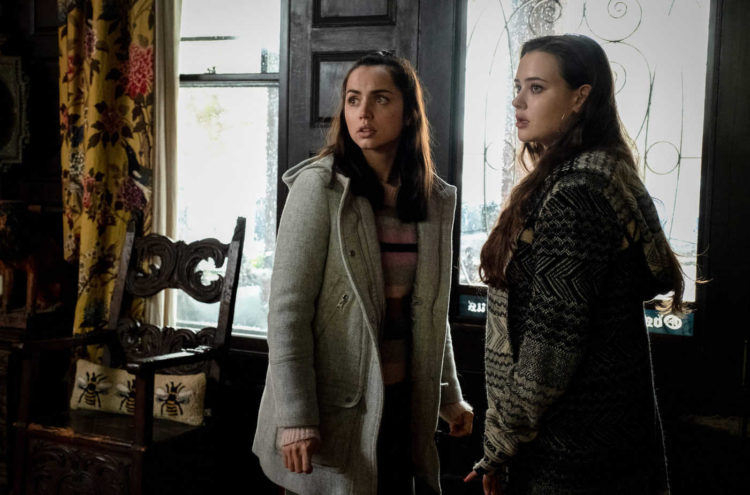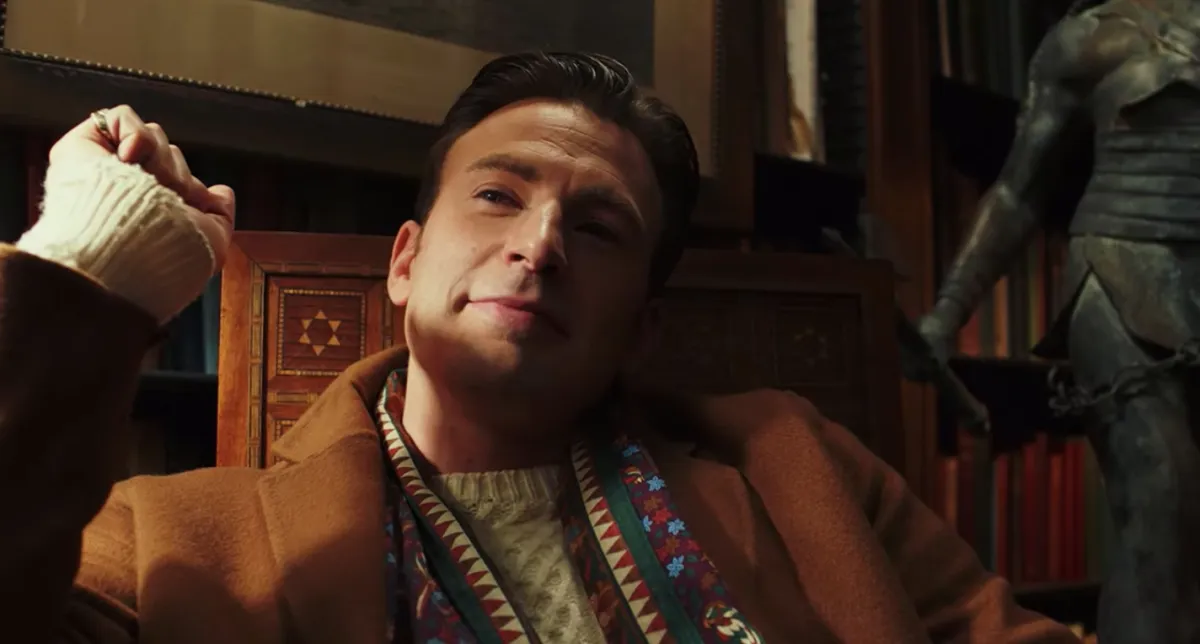Warning! this post will discuss the twists and the end of Knives Out. These are best experienced unspoiled, so we recommend not reading unless you’ve seen the movie.
I’ll say this upfront: Knives Out is a great movie. Its modern take on the classic whodunnit is smart and funny and I love watching the incredible cast chew the scenery in each scene. But it’s also a film with something to say about privilege, class, and America and that makes it even better.
If for some reason you’re reading this and you haven’t seen the movie (seriously guys, final spoiler warning) or if you’ve forgotten the plot, we’ll recap. Knives Out takes place in the days after the 85th birthday and subsequent death of Harlan Thromby (Christopher Plummer) who is found dead, apparently by suicide in the opening scenes of the film. That very suspicious suicide is under investigation by the local police with the help of the “last of the gentleman detective” Benoit Blanc (Daniel Craig), a deep-fried Poirot who’s been mysteriously hired to find out what really happened.
That’s the set-up and it seems pretty standard for a whodunnit…except director Rian Johnson isn’t interested in movies that don’t have something to say about the world, as we saw from his great work on The Last Jedi. The movie is subversively and brilliantly not about any of the sparkling white stars that populate its cast: the hero of the film is Marta, Thromby’s nurse, played brilliantly by Ana de Armas.
Knives Out is about privilege and how it affects the way people see the world and those around them. Every member of the Thromby clan has grown up rich and taken care of, thanks to the patriarch’s success, but they labor under the illusion that they are “self-made.” But even if some of them are successful people, they got there with a hand up from Dad/Granddad. Their wealth defines them in a lot of ways and has made them into people we easily suspect of murder when we find out that their privilege was under threat.
Which is why the film makes the brilliant choice to make Marta the hero of the film…and the person who we think, until the end, killed Harlan.

In the first major twist of the film, we discover that Marta accidentally give Harlan medicine from the wrong vial and, because he didn’t want to call an ambulance and get her in trouble, he resigned himself to death, told her how to get an alibi for his murder and then killed himself. The tension of the film then shifts from “Who did it?” to “How will Marta get away with this?”
And we want her to get away with it, not just because Ana De Armas is charming and Marta is the kindest, most human character by far in the film, but because we see the microaggressions and prejudice Marta has to deal with from the family that claims to care about her…but didn’t invite her to the funeral of the man she was so close to.
We the audience are treated to many scenes of various Thromby’s showing and discussing how they would make America great again, and a great deal of the humor of those scenes doesn’t come from the outright bigots, but from the seemingly enlightened people who nevertheless can’t remember where Marta, an immigrant, is from, and treat her like a maid, even while they protest that she’s part of the crowd.
When it’s revealed that Marta is the sole beneficiary of Harlan’s will everything changes of course and the family reveals their true colors. (Side note from my legal mind: the way in which Harlan amends his will is completely ridiculous and would not actually be legally binding because there are no witnesses to the codicil). They’re no longer condescendingly quoting Hamilton at her, their knives are, well, out.
Not only does the family react badly to Marta stepping into their place of privilege, but the big twist is that she didn’t kill Harlan: It was all a plot by the most pompous and privileged of the whole family: Ransom, played brilliantly by Chris Evans.
The fact that it’s the rich, white, blindingly handsome man that’s behind the murders is both predictable in its surprise but also so thematically fitting. He’s the epitome of everything wrong with the family. Rian Johnson has cast Captain America as the worst in America, and even though we’re told he’s a bad guy, he puts on an artfully distressed sweater, smiles, and we (and Marta) believe he’s redeemable because that’s how everyone treats people that look like Chris Evans.
The final, final twist is also so instructive: Marta didn’t switch the meds, because Ransom switched the labels and Marta is good at her job…and Harlan should have just listened to her and he wouldn’t have died. The message is clear: we dismiss and ignore women and minorities, we assume they do “unskilled labor,” and both those things are harmful and stupid.
Knives Out is a highlight of a great year in cinema, not just because it’s funny and fun, but because it has something to say about the social order we live in. And it’s satisfying because we finish the film with that order completely upended and Marta triumphant, enjoying her coffee, her house and her (new) rules.
(image: Lionsgate)
Want more stories like this? Become a subscriber and support the site!
—The Mary Sue has a strict comment policy that forbids, but is not limited to, personal insults toward anyone, hate speech, and trolling.—








Published: Dec 8, 2019 11:22 am